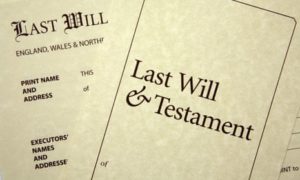Posted in Blog
Estate Planning Lawyer

The Complicated Nature of IRA Accounts
In 1974, the United States government passed the Employment Retirement Income Security Act (ERISA). This law established rules and regulations for IRAs. IRAs were originally meant to provide employers with a way to offer affordable retirement benefits to their employees since most companies did not have the funds to provide traditional pension plans. Today, these plans are one of the most common types of retirement plans utilized by workers.
Unfortunately, The ERISA contains many rules, exclusions, limitations, and legalities that are involved with an IRA account – especially when it comes to the transfer or disbursement of the account. For example, an IRA can only be “owned” by the individual that started it. It cannot be transferred to a trust nor can it be owned by a business or other entity.
However, there are ways for the owner to transfer the IRA upon their death. An estate planning lawyer can help.
Transferring an IRA to a Living Trust
Although you cannot put an IRA into a trust while you are alive, you are allowed to name the trust as the beneficiary of your IRA. However, while one could simply name a beneficiary for their IRA account, some plan owners prefer the increased accountability of a trust.
For example, if the owner of the IRA has a special needs child that he wants the funds to go to when he dies, but he wants to make sure he chooses who will oversee those funds and choose the trustee, then that individual can set up a trust for the child and name the trust as the beneficiary on the IRA. Upon his death, the assets of the IRA would go into the trust, with the child as the beneficiary and with the person the owner chose as the trustee.
While this may seem like a straightforward process, there may be transfer issues if the correct verbiage is not used – such as designated beneficiary, pass through, etc. There may also be an early payout penalty if the disbursement of the funds occurs if the owner of the IRA dies before they are a certain age.
This is why it is important to work with an estate planning lawyer when setting up IRA trusts, or any other types of trusts that you may be considering for your estate plan.
